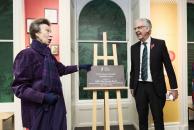
Latest updates and insights
Stay informed with our curated collection of news articles and insightful perspectives from the Royal College of Physicians of Edinburgh. Delve into current trends, advancements, and discussions shaping the medical field and our community. You can find our consultation responses within Research and Policy.













